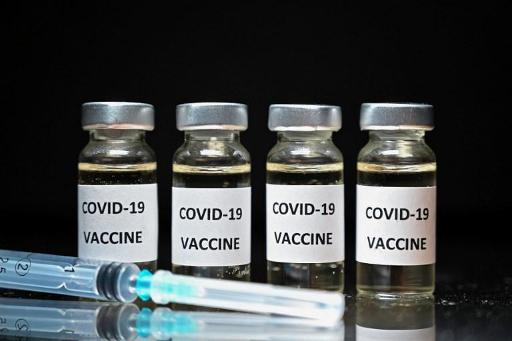As the world grapples with the coronavirus pandemic, 48 potential vaccines are currently being tested on humans but only 11 are in Phase 3, the final stage before they are cleared for use by the authorities, according to the World Health Organisation (WHO).
Each of the 11 uses messenger RNA, inactivated virus technology, viral vectors or recombinant proteins.
Messenger RNA
Potential vaccines using Messenger RNA seem to be the most advanced ones. They use ultra-innovative technology that consists of injecting genetic instructions known as Messenger RNA into human cells to get them to manufacture proteins or antigens specific to COVID-19. These proteins are then passed on to the immune system, which then produces antibodies.
- Pfizer: the U.S. giant and its German partner BioNTech are preparing to apply for emergency use authorisation from the U.S. Food and Drug Administration for a vaccine that could be available before the end of this year. The two companies this month presented the intermediate results of their Phase 3 trials, showing an effectiveness of over 90% in participants.
- Moderna: the U.S. biotechnological company announced on Monday that its vaccine was 94.5% effective and plans to manufacture 20 million doses by the end of this year.
Inactivated virus technology
Many vaccines rely on this technology in which infectious COVID-19 agents are given chemical or heat treatment to lose their toxicity while maintaining their capacity to trigger an immune response. This is the most traditional vaccination method.
- Sinovac: the Chinese biotech company has launched a Phase -3 test for its ‘CoronaVac’ on thousands of volunteers, mainly in Brazil.
- Sinopharm, another Chinese lab, has launched two candidate vaccines with Chinese research institutes. China plans to be able to produce 610 million doses of COVID-19 vaccines by the end of this year and has already given the green light for some of them to be used on an emergency basis.
- India’s Bharat biotech, for its part, launched the recruitment in November of close to 26,000 persons for its COVAXIN, developed with the support of the Indian Government, and plans to make the vaccine available in the first half of 2021.
Viral vectors
“Viral vector” vaccines use other, non-virulent, viruses as hosts, transforming them by adding a small amount of the virus responsible for COVID-19. The modified virus penetrates the cells of the vaccinated person which then manufacture a protein typical of Sars-Cov-2, thus teaching their immune system to recognise it.
- AstraZeneca, an Anglo-Swedish group and the University of Oxford: their vaccine uses an adenovirus as a viral vector. The results of this test are expected this year.
- Johnson & Johnson: this U.S. company has launched two clinical tests of its candidate, composed of a modified adenovirus, one of them a single-dose and the other, a dual dose. Globally, 90,000 participants will take part in this trial and results are expected in the first quarter of 2021.
- CanSino Biological: together with the army, this Chinese company has developed "Ad5-nCoV", a vaccine based on the adenovirus. Phase 3 tests have been launched in Mexico, Russia and Pakistan.
- Sputnik V: developed by the Russian Defence Ministry’s Gamaleïa epidemiological research centre. It is based on the use of two viral vectors, two adenoviruses. The Russians announced a few days ago that it was 92% effective. However, the Gamaleïa Institute has been accused of breaking the usual protocols to accelerate the scientific process. Many top Russian officials have said they have already been administered the Sputnik V vaccine.
Recombinant protein:
- Novavax: the U.S. biotech company is developing a so-called “sub-unitary” recombinant vaccine.The novel Coronavirus has points (viral protein) on its surface for entering into contact with the cells to be infected. These proteins can be reproduced and then introduced into the entire immune system to make it react.
In September, Novavax launched its Phase 3 test in the United Kingdom and it is set to launch a trial in the United States in late November. It expects to have preliminary data by the first quarter of 2021.
The Brussels Times

